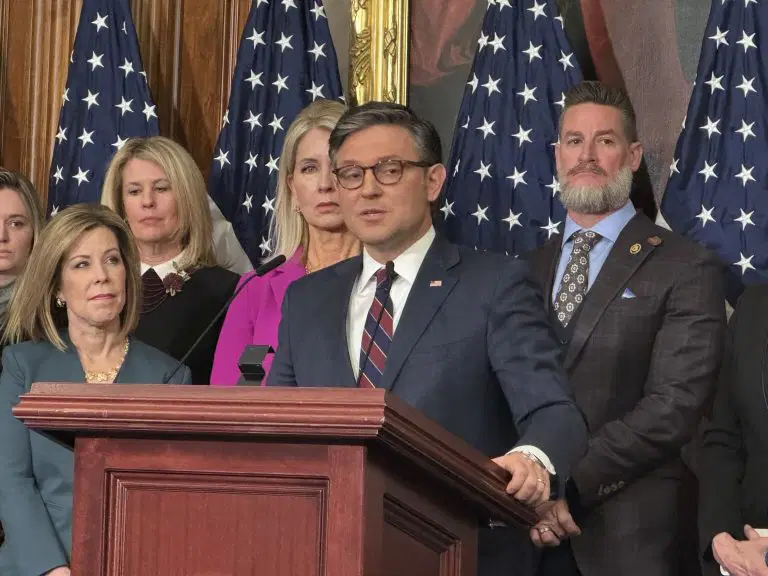The United States House of Representatives, led by Republicans, has passed a bill prohibiting transgender women and girls from participating in school sports that align with their gender identity.
The legislation, titled The Protection of Women and Girls in Sports Act, was approved in a 218-206 vote, with two Texas Democrats joining Republicans in support.

This marks the first standalone federal measure targeting transgender rights to clear either chamber of Congress. The bill redefines Title IX rules, stating that sex is determined by “reproductive biology and genetics at birth.” As such, transgender athletes will be banned from joining sports teams that correspond with their gender identity in federally funded schools.
“All throughout humanity, we have recognized as a species that there are women and there are men, as God created, who are obviously biologically different,” said Representative Greg Steube of Florida, the bill’s sponsor.
Despite passing the House, the legislation faces significant obstacles in the Senate. Although Republicans hold 53 seats, they require 60 votes to pass the bill due to the filibuster rule.
The bill has sparked widespread criticism from civil rights groups, which argue it could lead to intrusive investigations into students’ private medical information. Critics have also highlighted the lack of a clear enforcement mechanism in the bill.
READ MORE:Scavenging Banned in FCT, Restricted to Dump Sites Only — Wike Declares
“There is no enforcement mechanism in this bill,” said Representative Alexandria Ocasio-Cortez of New York. “And when there is no enforcement mechanism, you open the door for every enforcement mechanism.”
The Department of Education would oversee the bill’s implementation if it becomes law. However, detractors argue that it fails to provide explicit guidelines for verifying students’ sex, raising concerns about privacy and potential misuse.
Previous state-level efforts to restrict transgender participation in sports, such as a Florida proposal to monitor students’ menstrual cycles, faced intense backlash and were ultimately abandoned.
In addition to its cultural and social implications, the bill’s progress is intertwined with broader legislative negotiations, including debates over the federal debt ceiling and funding for initiatives like California’s wildfire recovery.
The legislation represents a deepening divide in the ongoing cultural debate surrounding transgender rights in the United States, with many warning of its potential to exacerbate discrimination and harm vulnerable communities.
Follow Parallel Facts on WhatsApp Channel:https://whatsapp.com/channel/0029VaCQSAoHgZWiDjR3Kn2E








Leave a Reply